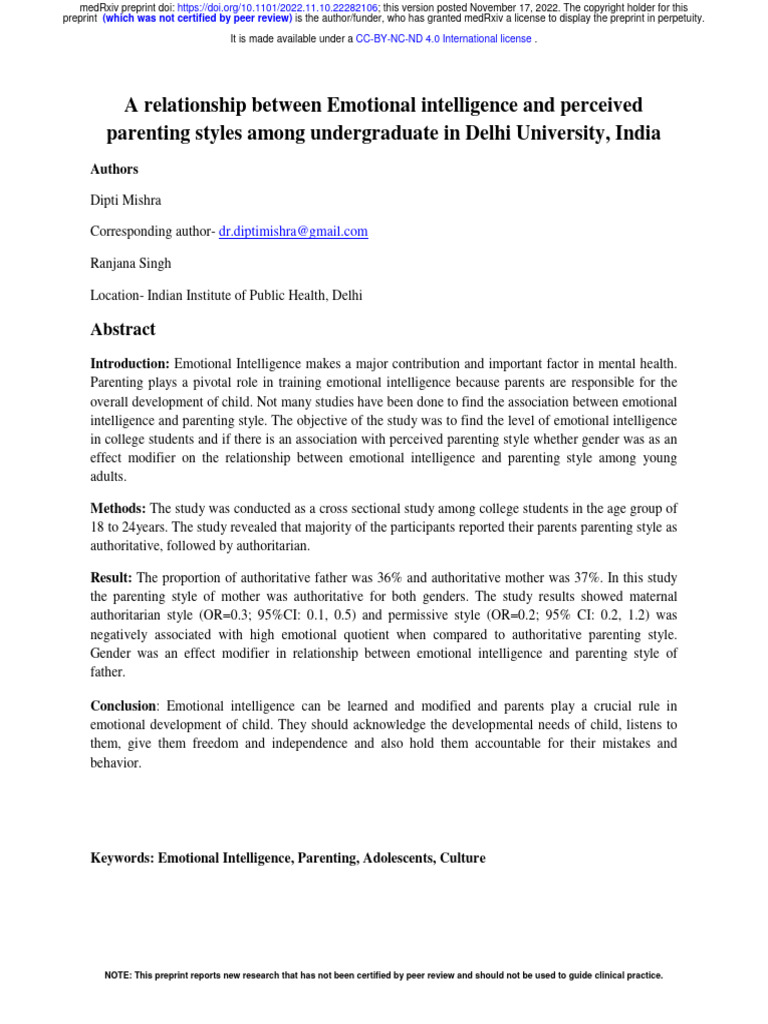Unlocking Relationship Success: The Role Of Emotional Intelligence

In today's world, healthy relationships are crucial for our overall well-being. But what truly makes a relationship thrive? The answer often lies in emotional intelligence. Emotional intelligence in relationships involves recognizing, understanding, and managing our emotions while also empathizing with others. This article will explore the importance of emotional intelligence and provide practical strategies for enhancing relationship dynamics.

Understanding Emotional Intelligence
Emotional intelligence (EI) is the ability to identify and manage one's own emotions and the emotions of others. It comprises several key components that contribute to effective communication and healthy relationships.

Self-Awareness
Self-awareness is the foundation of emotional intelligence. It involves recognizing your emotions and understanding how they affect your thoughts and behaviors. For instance, when feeling stressed, a self-aware person can identify this emotion and choose to respond calmly rather than reacting impulsively.
Empathy
Empathy in relationships is the ability to understand and share the feelings of others. It allows partners to connect on a deeper level. For example, a partner who listens actively and validates their significant other's feelings fosters trust and intimacy.
Relationship Communication Skills
Effective communication is vital for any relationship. Emotional intelligence enhances relationship communication skills by promoting clarity and understanding. For example, using "I" statements helps express feelings without blaming the other person, fostering a more constructive dialogue.
The Importance of Emotional Intelligence in Relationships
Emotional intelligence plays a significant role in the health of our relationships. Here are a few reasons why it's essential:
-
Improved Conflict Resolution: Couples with high emotional intelligence can navigate conflicts more effectively. They recognize their emotions and the emotions of their partner, leading to more constructive discussions.
-
Stronger Bonds: Empathy fosters deeper connections. When partners feel understood and valued, their relationship becomes more resilient.
-
Increased Satisfaction: Relationships characterized by emotional intelligence tend to be more satisfying. Partners communicate openly and support each other, resulting in greater happiness.
How to Develop Emotional Intelligence
Improving emotional intelligence is a journey that requires practice and commitment. Here are some strategies:
-
Practice Mindfulness: Mindfulness helps increase self-awareness. Spend a few minutes each day reflecting on your emotions and how they influence your reactions.
-
Engage in Active Listening: Show genuine interest in your partner's feelings. Ask open-ended questions and listen without interrupting. This builds trust and understanding.
-
Seek Feedback: Ask trusted friends or partners how they perceive your emotional responses. This can provide valuable insights into areas for improvement.
Real-Life Examples of Emotional Intelligence in Relationships
-
Conflict Resolution: A couple faced a disagreement over finances. They used emotional regulation techniques, taking time to cool down before discussing their feelings. This approach led to a productive conversation and a mutually agreeable solution.
-
Building Trust Through Active Listening: One partner felt unheard during discussions. By practicing active listening, the other partner validated their feelings, leading to a stronger bond and better communication.
-
Empathy and Relationship Satisfaction: After a long day, one partner came home stressed. The other recognized this and offered support by listening and providing comfort, significantly improving their relationship satisfaction.
-
Self-Awareness Leading to Better Communication: A partner realized their tendency to criticize during arguments. By being self-aware, they adjusted their approach, using "I" statements instead of blame, which reduced tension.
-
Relationship Coaching with an Emotional Intelligence Focus: A couple sought coaching to improve their relationship. The coach emphasized emotional intelligence, helping them develop skills in empathy, communication, and conflict resolution, ultimately enhancing their relationship dynamics.
Conclusion
Emotional intelligence in relationships significantly affects how we connect, communicate, and resolve conflicts. By developing self-awareness, empathy, and effective communication skills, we can foster healthier, more satisfying relationships. If you're looking to improve your interpersonal skills, consider focusing on your emotional intelligence. Start today, and unlock the potential for deeper, more meaningful connections in your life.
